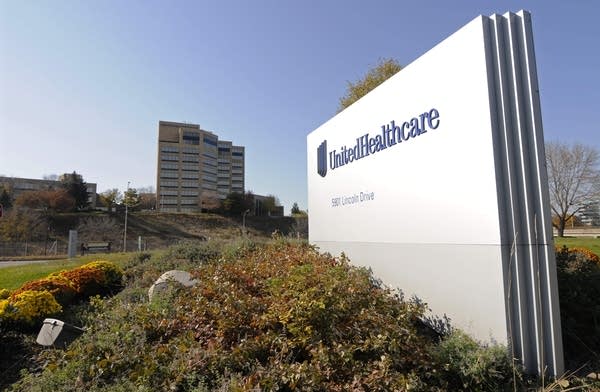UnitedHealth posts big profit jump but sees room to improve

Go Deeper.
Create an account or log in to save stories.
Like this?
Thanks for liking this story! We have added it to a list of your favorite stories.
UnitedHealth Group easily topped profit expectations during the second-quarter and hiked its outlook for the third time this year, but company shares were punished Tuesday for a performance that even company executives believe falls short of the health insurer's full potential.
Enrollment jumped due partially to a surge in government-funded business, and operating earnings soared about 21 percent for the company's fast-growing Optum segment, which strays well beyond health insurance.
But the revised outlook Tuesday left some on Wall Street underwhelmed, and the insurer lost customers from a core business: administering health coverage for large employers.
"Despite strong top-line growth and results, we are not performing at, nor consistently growing to, our full potential," CEO David Wichmann said during a conference call. "This has, and will continue to be, an area of intense focus for our business leaders."
Turn Up Your Support
MPR News helps you turn down the noise and build shared understanding. Turn up your support for this public resource and keep trusted journalism accessible to all.
UnitedHealth now expects 2018 adjusted earnings to range between $12.50 and $12.75 per share. That's up from a forecast for $12.40 to $12.65 per share that the company laid out in April.
Analysts expect, on average, earnings of $12.63, according to FactSet.
One analyst on the call wanted to know why executives hadn't raised the forecast more aggressively from their initial projection for annual earnings of between $10.55 and $10.85 per share.
Wichmann said UnitedHealth had actually raised its projections "pretty strongly."
In the second quarter, UnitedHealth added 450,000 customers to its Medicare Advantage business, which provides privately run versions of the federal government's Medicare program, and another 330,000 to its UnitedHealthcare Community and State business. That segment runs state- and federally funded Medicaid coverage for the poor and people who have disabilities.
Total enrollment rose nearly 5 percent, to 48.8 million people.
UnitedHealth did have a higher-than-expected medical loss ratio of 81.9 percent in the quarter.
That measures the portion of premiums paid out in health care costs. It was only slightly above Wall Street expectations, but that "invites scrutiny," Jefferies analyst David Windley said.
Health insurance is the biggest revenue generator for UnitedHealth. But it also has been pouring resources into Optum, which generates a larger operating margin. The Optum segment provides pharmacy benefits management and technology services. It also runs a growing number of clinics and urgent care and surgery centers.
The insurer booked $1.8 billion in operating earnings from Optum in the second quarter.
Overall, net income jumped 28 percent to $2.92 billion dollars in the quarter. Adjusted earnings totaled $3.14 per share, and total revenue grew 12 percent to $56.09 billion.
Analysts had expected per-share earnings of $3.03 from Minnetonka, Minnesota, company, according to Zacks Investment Research. Revenue matched Wall Street expectations.
Shares of UnitedHealth Group Inc., a component of the Dow Jones industrial average, slipped about 3 percent to $248.92 in midday trading.
UnitedHealth shares had climbed about 17 percent this year to set a number of new, all-time high marks.


